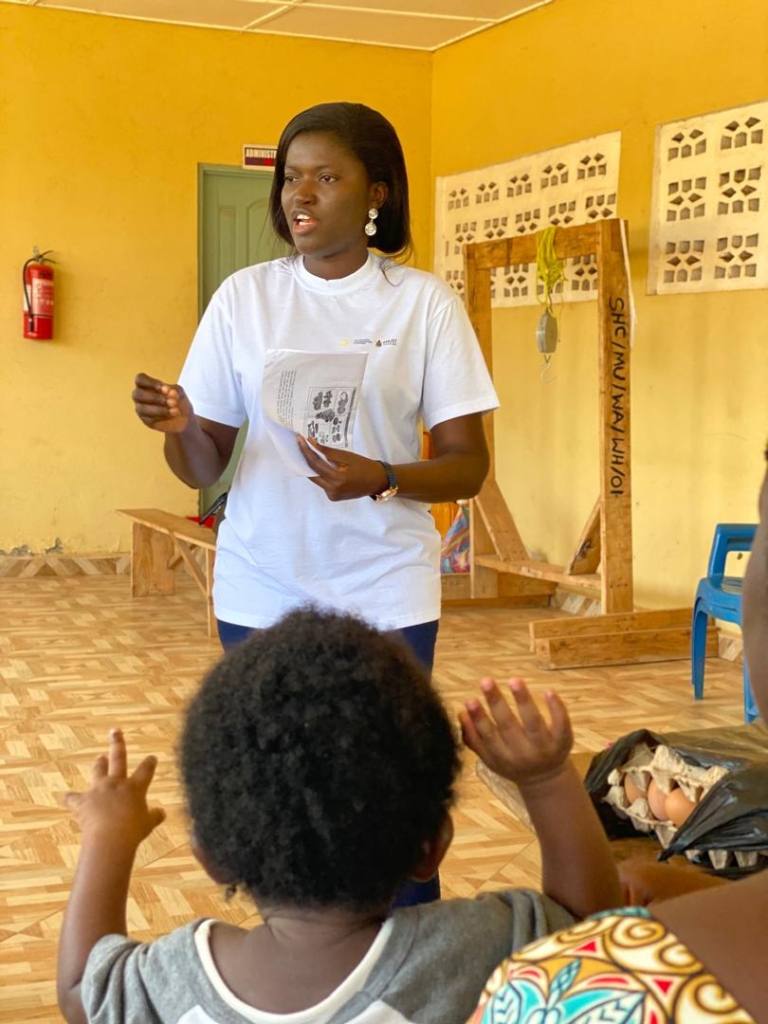Researchers from the Department of Biochemistry and Biotechnology (Nutrition unit) at the Kwame Nkrumah University of Science and Technology have found that Ghanaian households are facing significant food insecurity, threatening optimal infant development.
The study aimed to investigate how the accessibility and availability of food, dietary patterns, and complementary feeding practices influence growth, vision, and brain health in infants aged 6-23 months old in rural Ghana.
This research, funded by the Association of Commonwealth Universities Sustainable Development Goals Higher Education Grants, was carried out in 9 communities in the Bosomtwe District of the Ashanti region of Ghana.
The study revealed that about 21% and 37.4% of the infants were stunted and severely acutely malnourished, respectively.
Again, nearly half of the children were found to be exclusively breastfed, and infants who were not exclusively breastfed had a greater tendency to be stunted.
Further, infants from food-insecure households had a high probability of being stunted. Infants from food-insecure households had a high likelihood of microcephaly, a condition where infants have smaller heads than expected for their ages, and this often leads to abnormal brain development. Food insecurity was also linked to severe acute malnutrition.
The researchers also found that children who consumed diets predominantly composed of tubers, meat, and vegetables had a reduced likelihood of stunting.
"About 29-36% of the infants who participated in the study showed various degrees of poor cognitive development. Early initiation of breastfeeding, continued breastfeeding, and meal frequency showed a positive association with brain development. Cereal, milk, and powdered formulae were associated with good brain health.
"Children who were exclusively breastfed had a reduced likelihood of visual acuity. Consumption of tubers, meat, and vegetables influenced eye health," added the Principal Investigator, Dr. Mary Amoako.
She emphasized, "Food insecurity in rural communities is high, coupled with high levels of anemia and undernutrition, and the results clearly show that these are having negative impacts on the nutritional and health outcomes of these children. There is a need for relevant stakeholders to reassess specific nutrition intervention programs, such as education on feeding practices, to improve nutritional outcomes in infants and children."

This study was conducted in collaboration with Dr. Kwadwo Owusu Akuffo from the Optometry and Visual Science Department at KNUST.
The results of this study were presented at the just-ended Africa Nutrition and Epidemiology Conference (ANEC) in Cape Coast, Ghana. Mr. Fiifi Amoako Atta Panyin Essiam, the MPhil student on the project, who made this presentation, also reiterated the importance of healthy diets and feeding practices to improve child health and nutrition outcomes.
The researchers have been undertaking community dissemination exercise on nutrition in the Bosomtwe district.
Latest Stories
-
Dr. Who? Ghana’s Epidemic of Degrees without Diagnosis: Satirical Musings on Ghana’s Curious Obsession with Titles
3 minutes -
Glaucoma Laser treatment launched at St. Thomas Eye Hospital
15 minutes -
Hindsight: What does the law say about Nations FC’s walk-off?
17 minutes -
Mahama outlines the bold vision behind establishment of the GoldBod
21 minutes -
Highway robbers make off with over 1.7 million CFA, jewellery, and phones at Gomoa Potsin
22 minutes -
Put Ghana first: Asantehene tells Mahama appointees during courtesy call
28 minutes -
Why Otto Addo should maintain these players in the Black Stars going forward
30 minutes -
Ghana Voice Actors Community officially launched in Accra
46 minutes -
Dr Sodzi Sodzi-Tettey honoured with Doctor of Science Degree by UHAS for contributions to health and leadership
49 minutes -
UHAS-Nkabom Project: A $9.8m vision to transform public health, tackle unemployment, and end malnutrition
1 hour -
TGS brings health and financial hope to Ngalekyi fishing community
1 hour -
Prof Zottor urges journalists to lead public nutrition awareness in Volta and Oti regions
1 hour -
Karpowership champions reliable, inclusive power solutions for industrial growth
1 hour -
Motorists upbeat as fuel prices drop nationwide in line with projections
2 hours -
Kwadwo Baah open to representing Ghana at senior level
2 hours

